Research Foundations
Jiva is a career guidance system developed for non-Western cultures with particular reference to India. The intervention is based on strong research foundations and was developed in two phases with the intention of bringing career and livelihood planning into the national mainstream. Given below is an overview of how Jiva evolved.
Phase 1: Survey and Collation of Base Line Data
In order to develop a strong evidence base we conducted a comprehensive survey – Work Orientations and Responses to Career Choices (WORCC-IRS), in 12 different parts of India, in 8 different languages, covering a sample of close to 10,000 Indian young people, parents, teachers and other connected with youth. This survey generated a robust data base pertaining to young people’s orientations to work and livelihoods, and provided deep insights into the career choice process in India. The pictures show the survey being conducted in various parts of India.
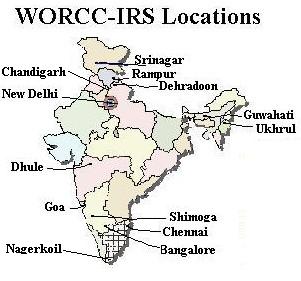


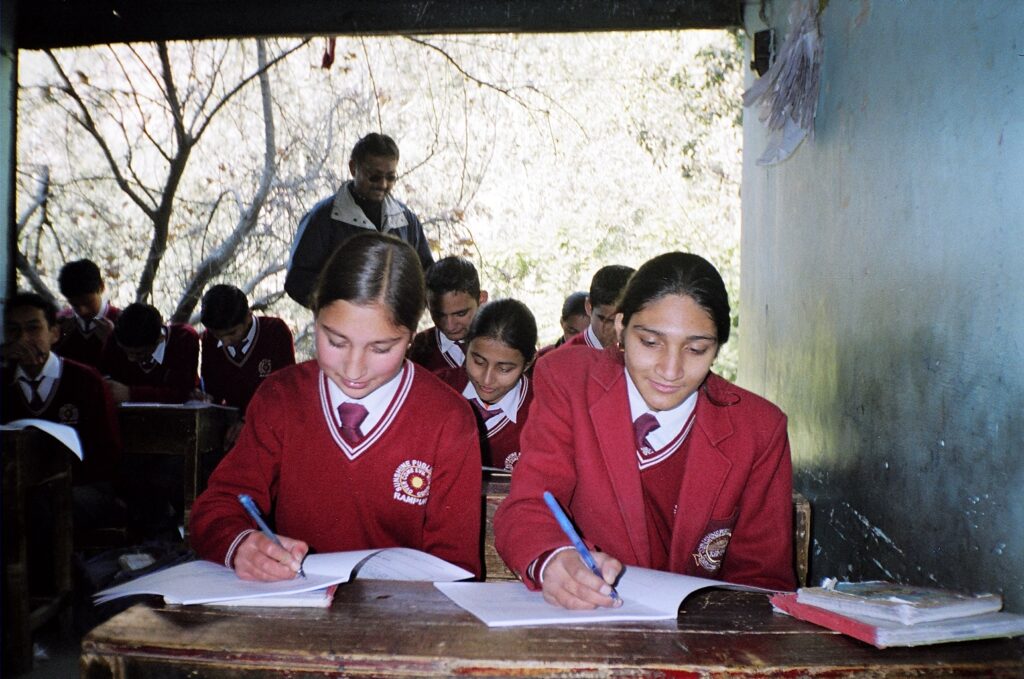



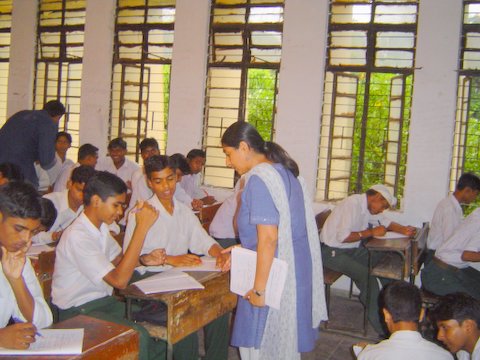


Phase 2: National Consultation on Career Psychology – NCCP:
In a first for the country, the National Consultation of Career Psychology (NCCP) was convened in Bangalore, India, with the intention of presenting the findings of the WORCC-IRS to key stakeholders. The consultation was attending for leading social scientists, educators, psychologists, youth workers as well as parents and children. Participants included representatives from the National Council for Research and Training (NCERT), International Labour Organisation and UNICEF. Intensive discussions were held over 2 days with a view to making recommendations for the creation of a career guidance system for the country. The pictures show the consultation in progress.
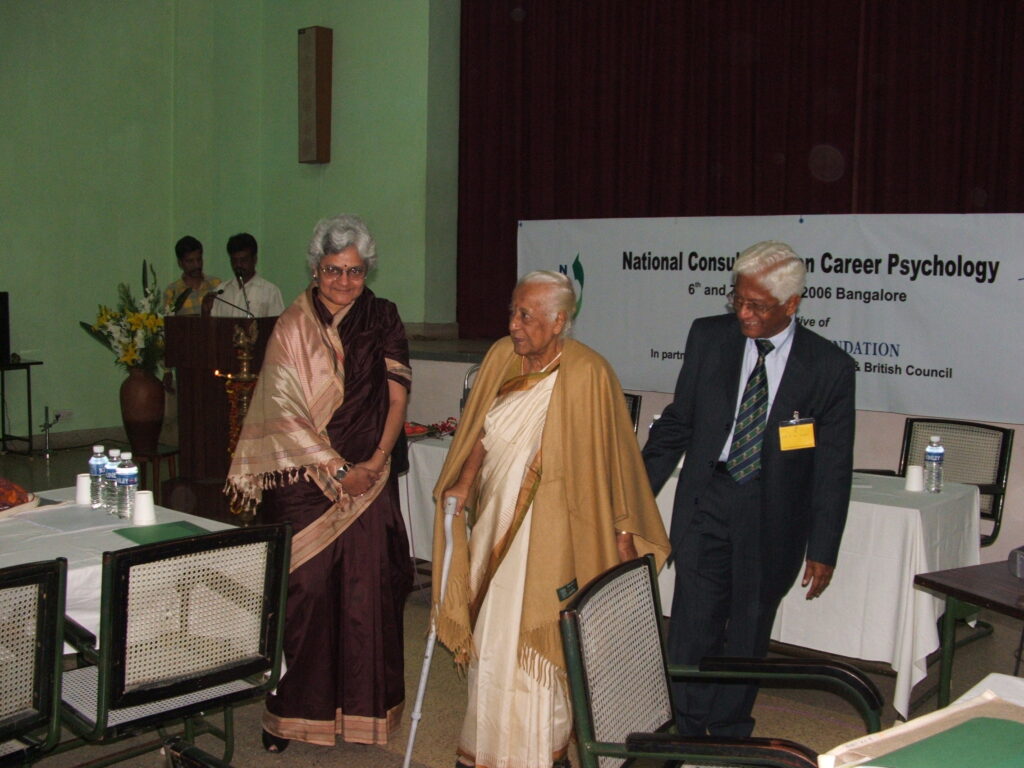


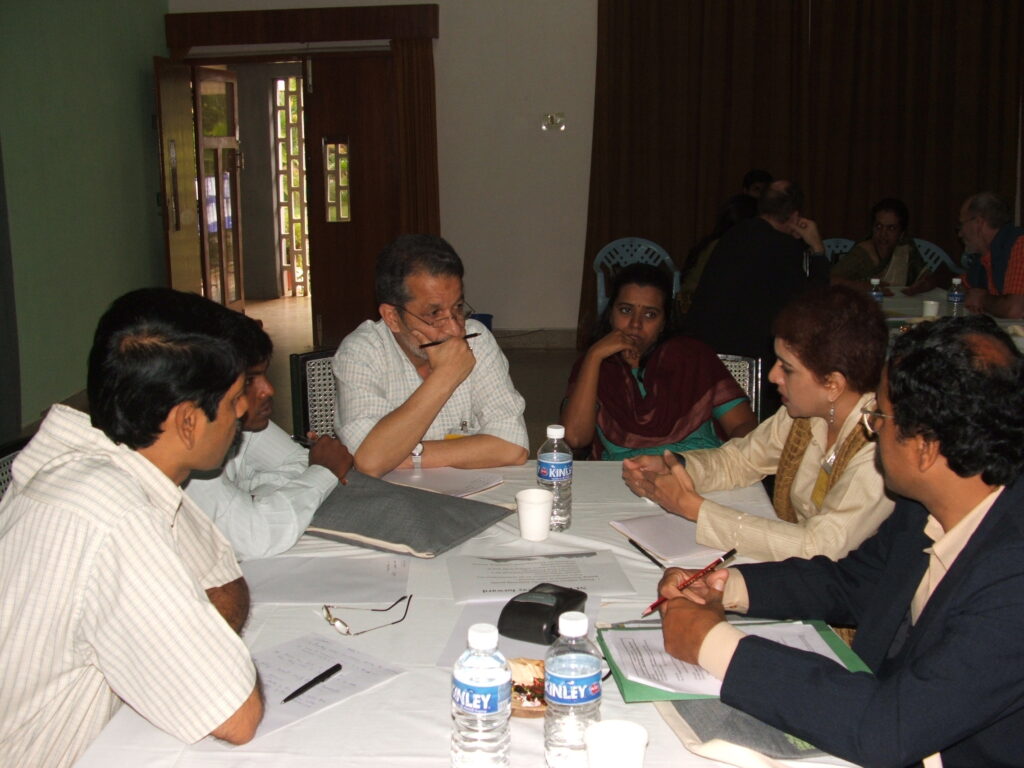
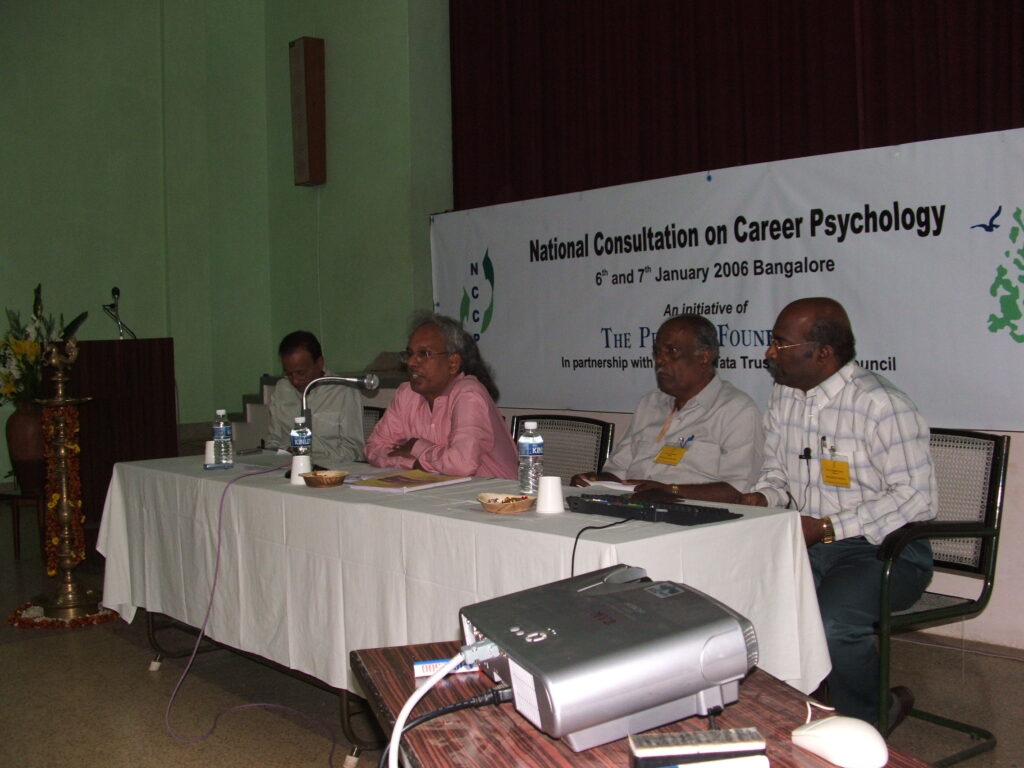

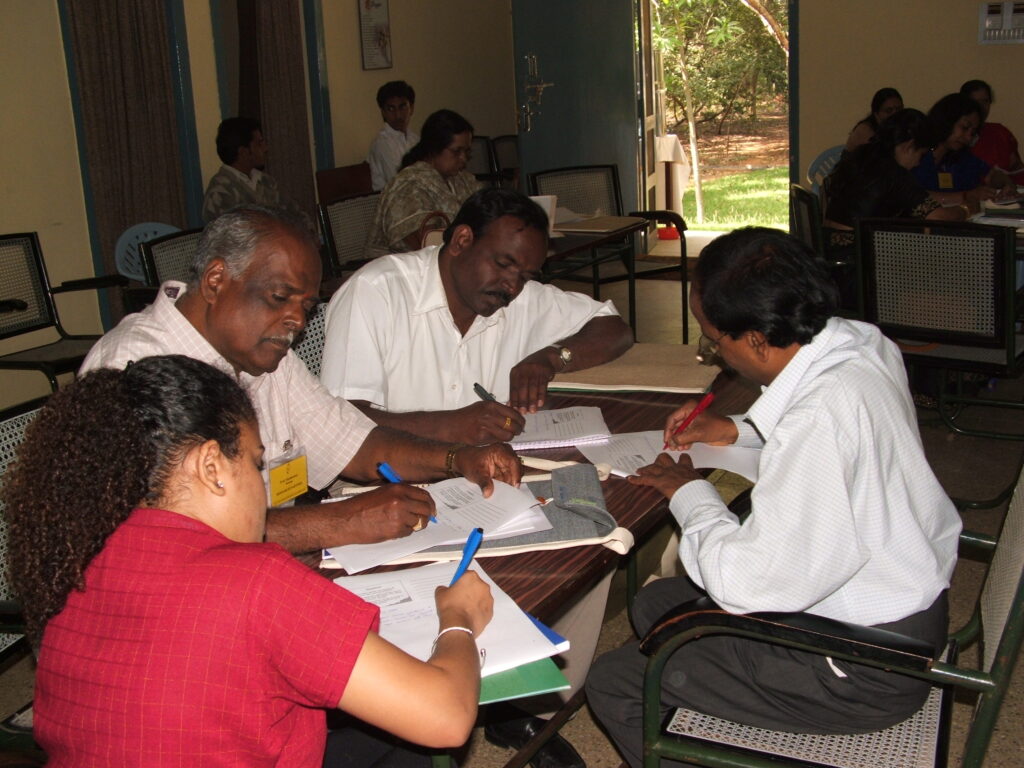
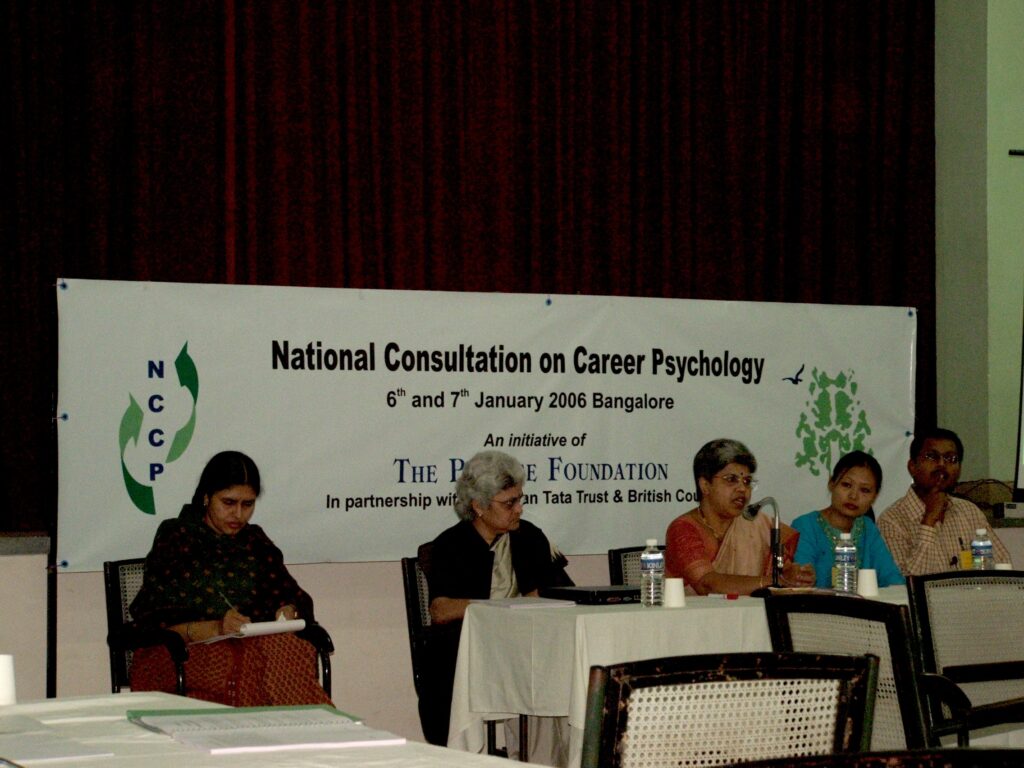
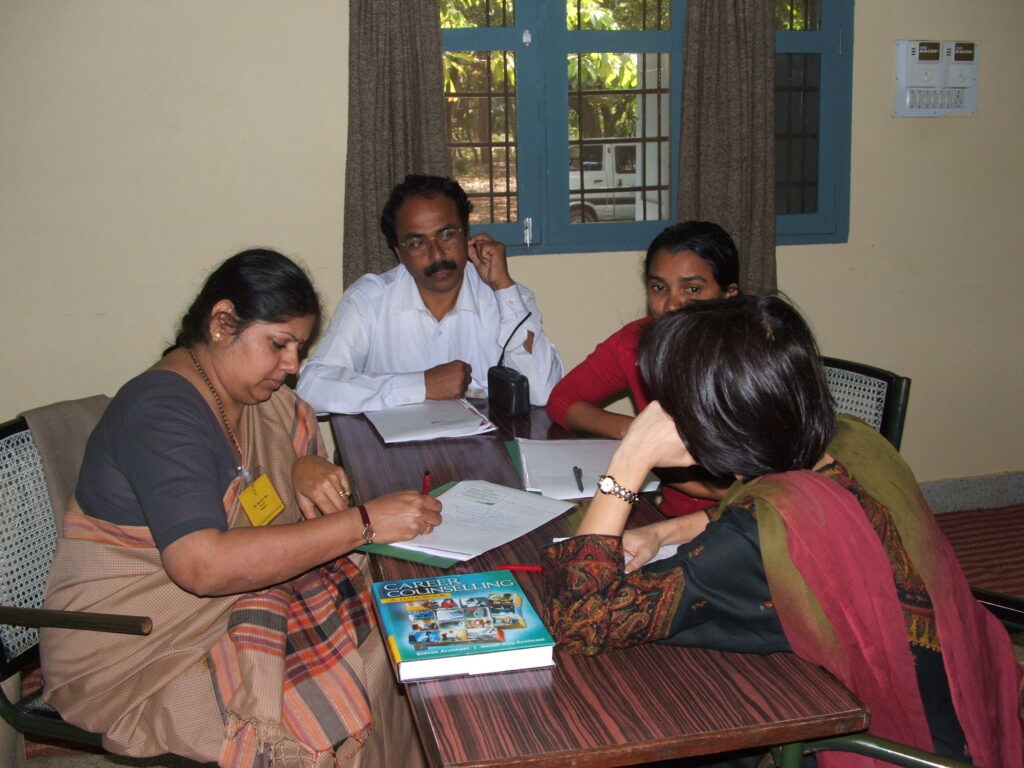
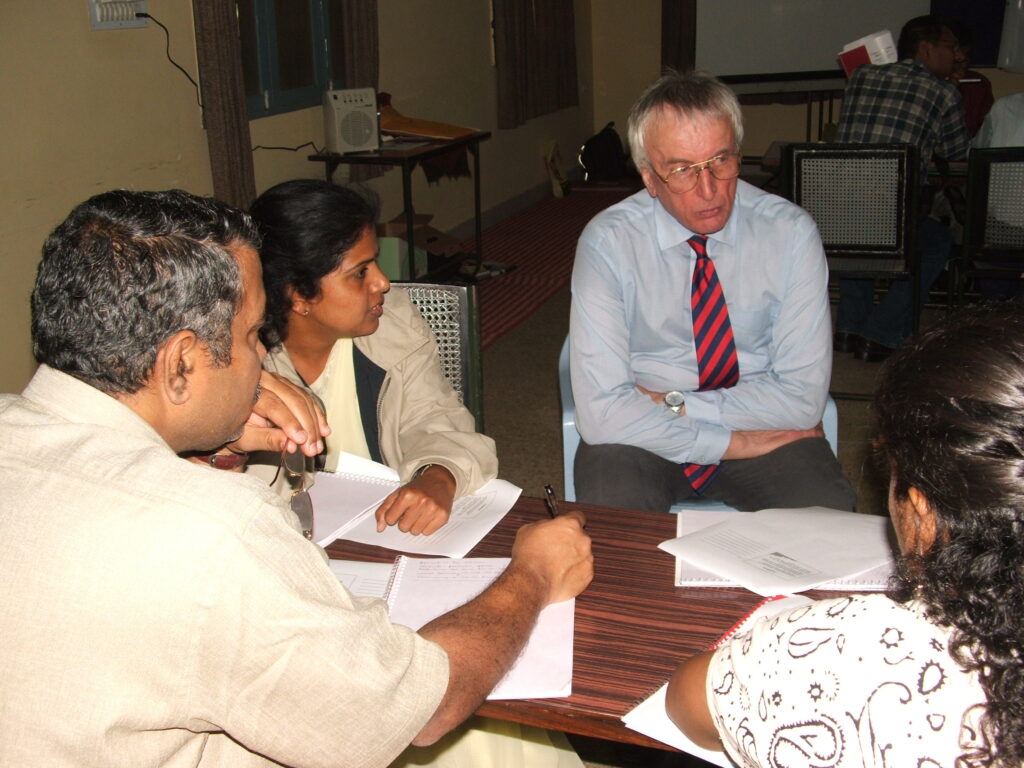
Five key recommendations emerged from discussions of the WORCC-IRS data by experts and scholars at the NCCP.
These recommendations and data guided the development of the Jiva approach to career and livelihood planning.
FIVE KEY RECOMMENDATIONS
- Use the WORCC-IRS findings to develop culturally validated teaching-learning material for careers education suitable for the Indian context.
- Develop a skilled workforce to deliver career counselling services around the country by creating training programmes at the certificate, diploma and degree levels of qualification.
- Develop suitable, culturally grounded teaching-learning material for the transaction of career development activities.
- Develop the intervention in as many Indian languages as possible.
- Draw the attention of policy makers to the importance of career counselling.
Click here for a copy of the WORCC-IRS Report: PART 1 and PART 2
Ongoing monitoring and evaluation
At Jiva we are committed to ensuring that our interventions are achieving the outcomes they are designed for. Therefore we have comprehensive monitoring and evaluation system in place including the following:
- Review of all our psychometric tools: Once in two years the responses of students to our tests and inventories are put through a statistical analysis (item analysis) to check whether the items in the tests are working as expected. Alterations are made if necessary.
- Adaptation of teaching-learning material: Jiva is an activity based approach and Jiva exercises are based on contemporary realities. We review our worksheets, learning cards and flip charts regularly to to keep them updated and relevant.
- Updating of career information: The educational scenario in India is quite dynamic and changing! Eligibilities, entrance exam criteria, career paths and career information can vary from one year to the next. We regularly review our career information data base to ensure that the latest information is available to students.
Jiva rests upon the strong data base provided by the WORCC-IRS study. And we remain committed a research oriented approach to ensure that Jiva remains statistically and culturally relevant to all our students.
